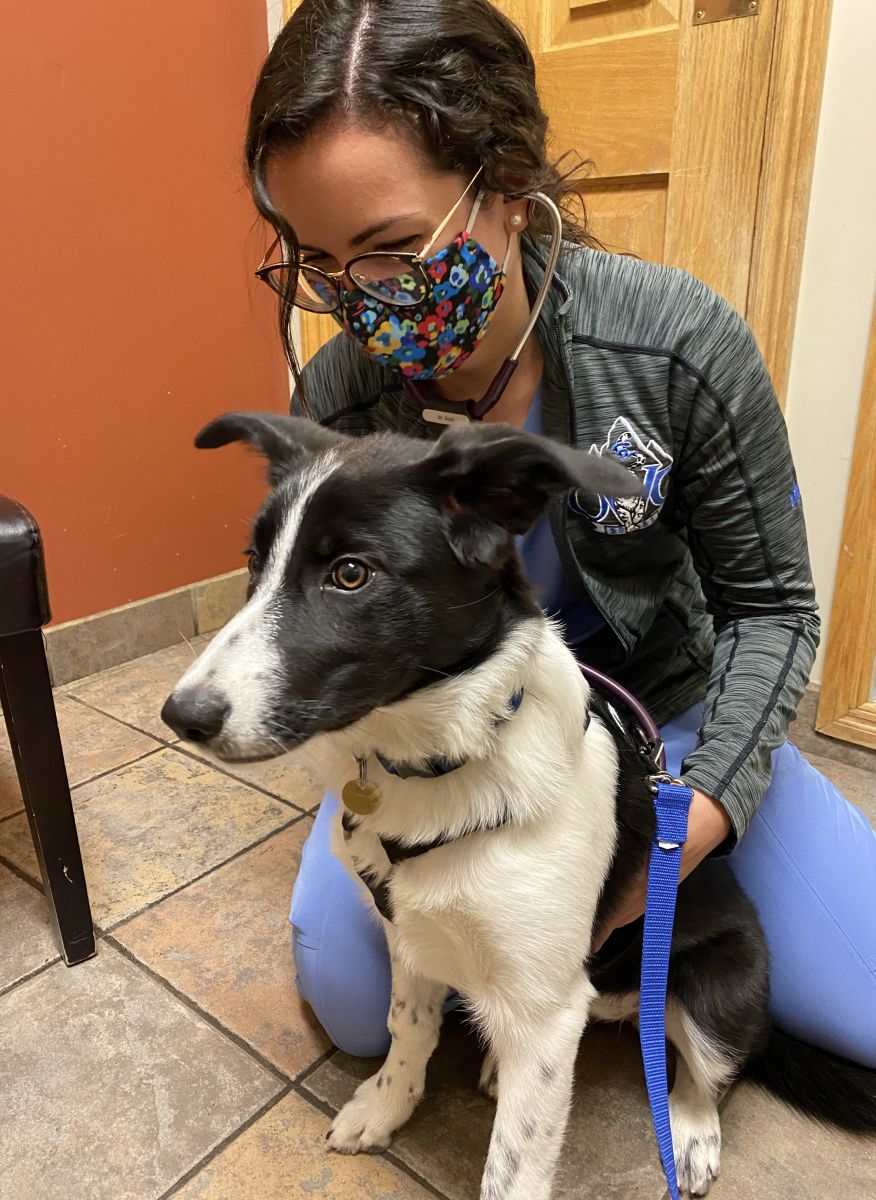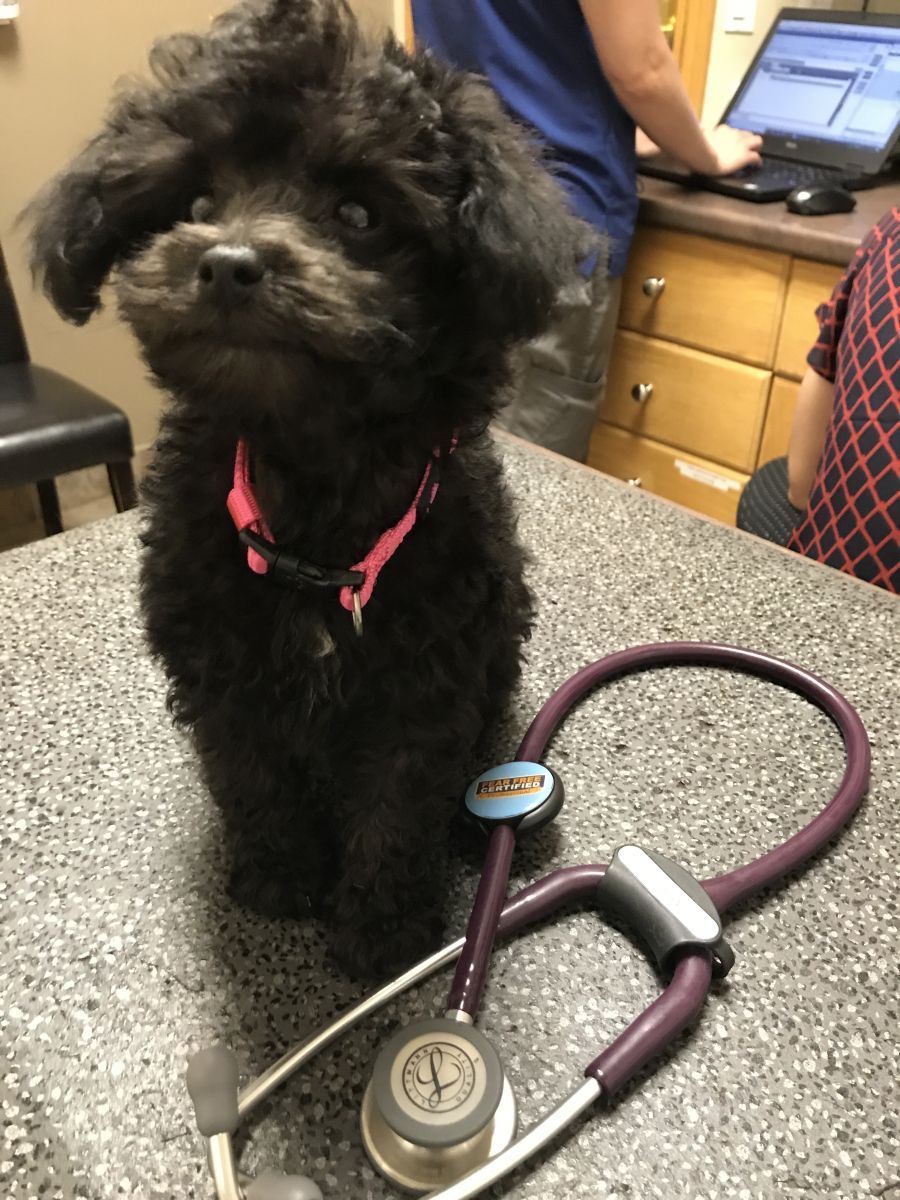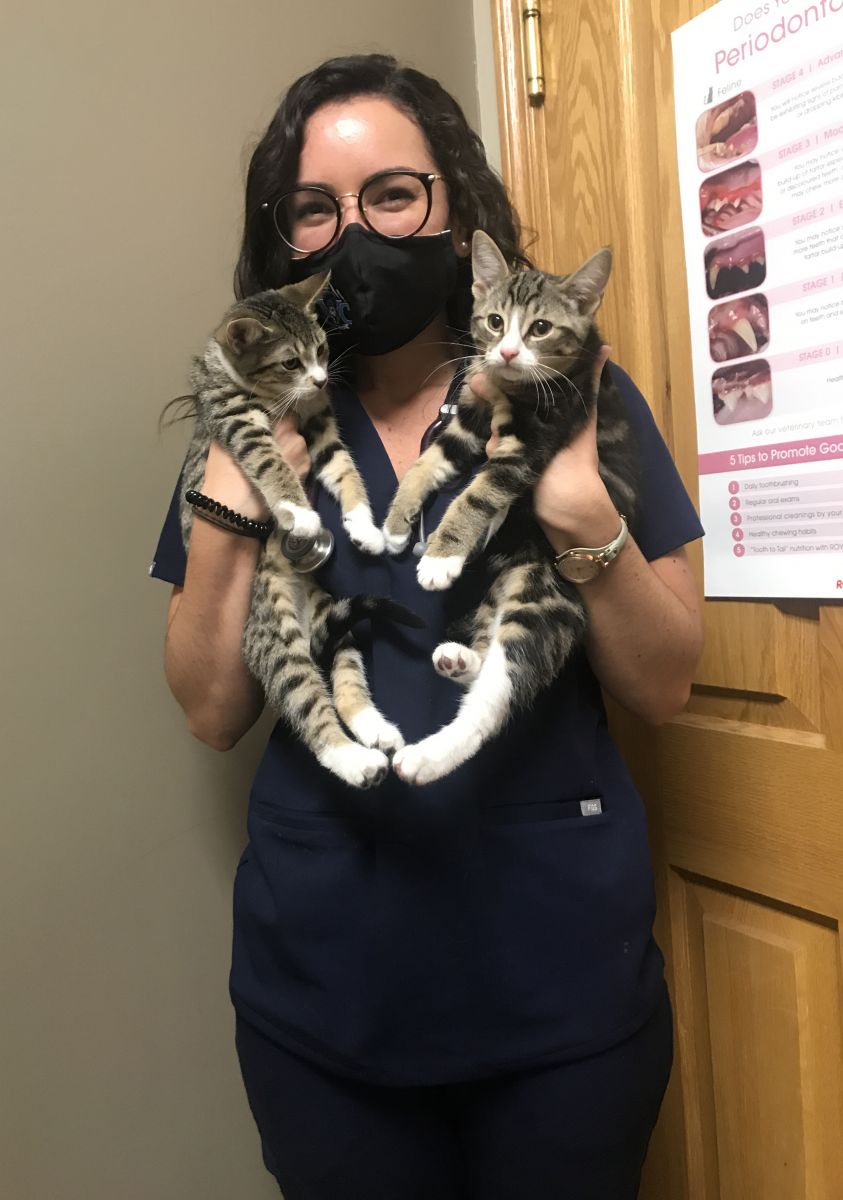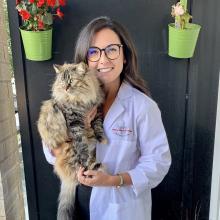As student veterinarians, we are eager, we are curious, and we are excited! We like to be a part of all the interesting cases and try to brainstorm what could possibly be wrong with that mystery patient. I have certainly been guilty of this here at my externship! But time and time again, I have been reminded of the importance of those “simple” yearly wellness appointments. I say “simple” because they usually do not come with any exciting medical history, or vague clinical signs that need to be investigated. But “simple” most definitely does NOT mean unimportant!
 These yearly wellness appointments are critical for what we refer to as “preventative care.” Preventing any type of medical condition is much preferred over having to treat it. Catching it early would be the next best thing! Preventative care starts from your first visit with your puppy or kitten just like Maya, Finnigan and Charlotte, and Lola. (Client consent was provided to include info and photos.) Starting them off on the right paw is crucial to their development.
These yearly wellness appointments are critical for what we refer to as “preventative care.” Preventing any type of medical condition is much preferred over having to treat it. Catching it early would be the next best thing! Preventative care starts from your first visit with your puppy or kitten just like Maya, Finnigan and Charlotte, and Lola. (Client consent was provided to include info and photos.) Starting them off on the right paw is crucial to their development.
In wellness appointments, we talk about nutrition to help them grow and maintain a healthy body weight. We discuss training and environmental enrichment to help them develop a healthy mind. We come up with a vaccination protocol so that we can prevent diseases that could cause them to become very ill. We discuss the importance of spaying and neutering our pets. And every year thereafter, having them in for their wellness check will help us to help them live out their best life along side their favourite humans.
 As your pet gets older, even if they appear happy and healthy, a checkup is crucial to keep track of their health trends, including their weight, dental health, mobility, heart health and even their bloodwork. Having bloodwork done every year would be ideal, but even every few years would be very useful. There are numerous diseases that can be identified through bloodwork, and as mentioned above, catching these disease processes in the early stages will result in a much better outcome for you and your pet. In your pet’s senior years, they often slow down, are less playful and energetic and although it’s easy to attribute these to normal age-related changes, it is often the result of underlying disease, one common example being arthritis. Although pets can be very stoic, this discomfort is something that we can recognize on physical exams and help them manage with supplements, diet, and medication.
As your pet gets older, even if they appear happy and healthy, a checkup is crucial to keep track of their health trends, including their weight, dental health, mobility, heart health and even their bloodwork. Having bloodwork done every year would be ideal, but even every few years would be very useful. There are numerous diseases that can be identified through bloodwork, and as mentioned above, catching these disease processes in the early stages will result in a much better outcome for you and your pet. In your pet’s senior years, they often slow down, are less playful and energetic and although it’s easy to attribute these to normal age-related changes, it is often the result of underlying disease, one common example being arthritis. Although pets can be very stoic, this discomfort is something that we can recognize on physical exams and help them manage with supplements, diet, and medication.

Over my externship, I have experienced the importance of these wellness appointments. I have observed the importance of effective communication. I have experienced the gratitude of owners when a health concern was found on the physical exam that could be addressed and taken care of. And as a veterinary student, I have found the excitement and the value of learning what goes on during a wellness checkup. I am motivated to continue practicing the skills needed for these routine appointments so that in a few short months, I can begin doing yearly checkups on patients that I will have the pleasure of watching grow from puppies and kittens all the way up to seniors that live a full, happy life.
